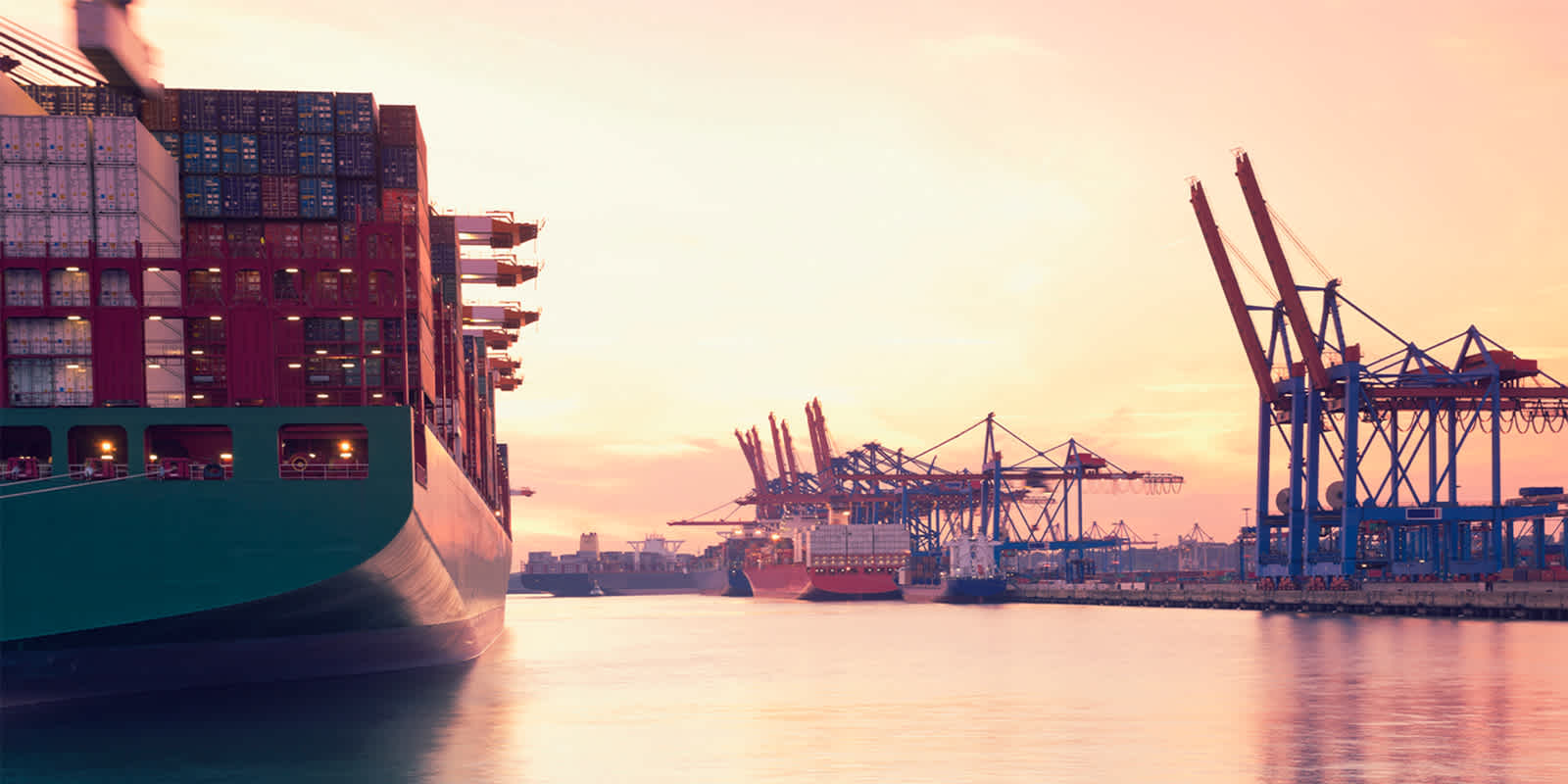
December 19, 2019
Incoterms® 2020: 11 Terms, 5 Big Changes
Incoterms® 2020: 11 Terms, 5 Big Changes
Incoterms® 2020 enter into force this January 1, kicking off the new decade with an updated set of international commercial terms for shipping. The rules still include 11 terms, but revamp five key elements for the global marketplace.
The new Incoterms® modernize terminology, raise the bar on security and insurance, and balance flexibility with accountability for all parties.
For businesses gearing up for the shift to Incoterms® 2020, following is a quick overview to help steer freight forwarding towards success in the coming decade.
A Global Ideal
Incoterms® define which party arranges for payment and handles goods during shipping. The terms are so essential that the United Nations Commission on International Trade Law (UNCITRAL) recognizes them as the global standard for interpretation in disputes or discrepancies.
While their practical value is conclusive, their genesis is inspired. The International Chamber of Commerce (ICC) standardized an inaugural six terms in 1936 — almost 20 years after its 1919 formation — to magnify and promote global trade as a means of untapped prosperity after World War I.
Now, the authors of Incoterms® 2020 represent the United States, Europe, and, for the first time ever, China and Australia. Together, they provide a comprehensive approach to the international aspects of freight agreements.
The 2020 update is the fourth in 30 years, as the rapid pace of trade demands decennial review since 1990.
Incoterms® 2020: The Rundown of All 11 Terms
7 for any mode of transport
- ExWorks (EXW)
Seller delivers by making goods available to buyer. - Free Carrier (FCA)
Seller delivers goods to carrier or buyer-appointed agent. - Carriage Paid To (CPT)
Seller delivers goods to carrier or buyer-appointed agent and pays for international carriage. - Carriage & Insurance Paid To (CIP)
Seller delivers goods to carrier or buyer-appointed agent and pays for international carriage and insurance. - Delivered at Place Unloaded (DPU)
New to 2020, formerly called Delivered at Terminal (DAT). Seller delivers by making goods available to buyer by unloading goods at a named place. - Delivered at Place (DAP)
Seller delivers by making goods available to buyer at a named place. - Delivered Duty Paid (DDP)
Seller delivers by placing goods at buyer’s disposal, cleared for import with duties paid and ready for unloading at named place.
4 for ocean and inland waterway transport
- Free Alongside Ship (FAS)
Seller delivers by placing goods alongside a vessel nominated by buyer. - Free on Board (FOB)
Seller delivers when goods are on board a vessel nominated by buyer. - Cost & Freight (CFR)
Seller pays for costs and freight to named destination and delivers when goods are on board a vessel nominated by buyer. - Cost, Insurance & Freight (CIF)
Seller pays for costs, freight, and insurance to named destination and delivers when goods are on board a vessel nominated by buyer.
The Main Changes
This January, look for updates that improve the global trade ecosystem by offering clarity and confidence to all parties in an agreement, including businesses from emerging origin countries and carriage providers.
Overall, the changes include an update to the name of one of the terms and enhance the presentation of the rules to steer the user toward the right Incoterms® rule for their sale contract.
Incoterms® 2020 provide for five main changes:
- DAT is now DPU. The term Deliver at Terminal (DAT) is now Delivered at Place Unloaded (DPU) to reflect the modern need for flexibility and efficiency in an unloading place.
- FCA closes a gap. Now, Free Carrier (FCA) makes it easier for sellers to obtain payment from a buyer’s bank. Sellers are often required to present to banks a bill of lading with an on-board notation, indicating delivery of goods. But carriers frequently refuse to issue the notated bills of lading to the seller if they receive the goods from an intermediary transport — like a truck — instead of directly from the seller. The new term provides that buyers can instruct carriers to issue bills of lading with on-board notations.
- CIP increases insurance. The Carriage and Insurance Paid To (CIP) term now requires insurance coverage provided by Clauses (A) of the Institute Cargo Clauses (LMA/IUA). There is no change to Cost Insurance and Freight (CIF), the only other term to require the seller to provide insurance.
- Sellers can DIY transportation. Terms now state that a seller can arrange carriage as necessary. The update allows for a broader range of solutions than the traditional hiring of a third-party carrier, recognizing that many sellers now use their own methods, including trucks or planes, to deliver goods.
- Security increases for all. Import and export security requirements have increased exponentially since Incoterms® 2010. The 2020 edition expresses specific, new security responsibilities related to goods, cash, and documents under individual trade terms.
Each of these updates may trigger a cascade of tweaks to your supply chain or other operations. The impact of Incoterms® 2020 will depend on the moving parts of each unique business.
Since Incoterms® govern international commerce only, region-specific regulations and terminology aren’t impacted. For instance, Incoterms® can’t determine payment of value-added taxes (VAT), relationships with customs unions, or national trade or legal definitions, like “less than truckload” or “breach of contract.”
Flexport Vice President of Customs and Trade Advisory Tom Gould explains a scenario in which savvy shippers could save with Incoterms®.
“U.S. Customs provides that if a company buys Free on Board (FOB) and uses a single freight forwarder, like Flexport, it can deduct transportation expenses from factory to port when duties are calculated.
“By leveraging this kind of Incoterms® expertise, a company could save a substantial amount of money.”
Incorporating Incoterms® into contracts is voluntary and timing is variable. Examine existing contracts that include Incoterms® to ensure the inclusion of an edition year. Edition specificity is a requirement of the rules — and without it, the prevailing terms become one more matter to hammer out in the event of a dispute.
For contracts beginning at the end of 2019, be sure to state which edition applies to avoid later confusion.
The big-picture strategy checklist
- Audit contracts that extend into or renew in 2020.
- Modify contracts and documents to stay current.
- Review processes for Incoterms® 2020 compliance.
- Formalize tighter security for imports and exports.
- Increase insurance coverages to satisfy revised CIP.
- Instruct carriers to issue bills of lading under FCA.
- Amend operations to address other requirements.
- Forecast new landed costs that reflect new terms.
- Recruit partners to ensure a successful transition.
To learn more about Incoterms® changes affecting global trade, visit the Incoterms section of our Help Center.



